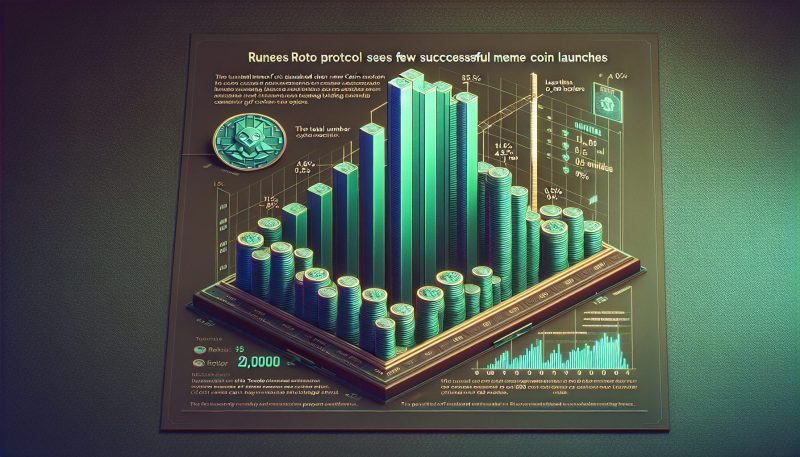
Less than 0.5% of Runes tokens were successful, highlights analyst
Success limited to 0.5% of new Runes protocol meme coins.
Since the Runes launch, less than 0.5% of the meme coins created using this protocol were “successful.” Guiriba, a crypto analyst at Brazilian research firm Paradigma Education, shared on X that only 77 meme coins in the over 20,000 tokens launched have over 500 holders.
Guiriba describes that the two most common ways to acquire Runes meme coins are through airdrops given to holders of non-fungible tokens (NFTs), or minting them on a “fair launch” model, open to anyone interested.
“In the second category, traders can find meme tickers at a low price, and it all depends on Bitcoin fees. An example was SATOSHI NAKAMOTO: 1 mint of 100 tokens cost $300 and the next day it went up to $900. Today, they are traded at $270,” explained Guiriba.
However, only 46 tokens fairly launched captured over 500 holders, representing just 0.2% of the 20,000 tokens used in the research. The most successful meme coins in this group are “SATOSHI NAKAMOTO” and “FEHU”, which have over $100 million in market cap and were the first two fairly launched tokens using the Runes protocol.
Runes is a new fungible token standard for Bitcoin’s ecosystem created by Casey Rodarmor, the developer behind the Ordinals Protocol. It went live in the first block after Bitcoin halving, which happened in the first hour of April 20.
The Paradigma analyst also tracked the tokens airdropped for NFT holders, identifying 31 of them. Moreover, Guiriba highlighted that the price of these NFT collections fell significantly after the airdrop snapshot was announced.
“Adding fairly launched meme coins and airdropped tokens for pre-Runes NFT collections, there are only 77 tokens with over 500 holders among over 20,000 projects. This is ~0.4% of the total analyzed.”
Despite the apparent failure of the Runes protocol, Guiriba points out that this protocol is just a little over one week old, and lacks infrastructure and traders. As centralized exchanges list these assets and boost their volume, through liquidity and better interfaces, the number of tokens with over 500 holders could change.
